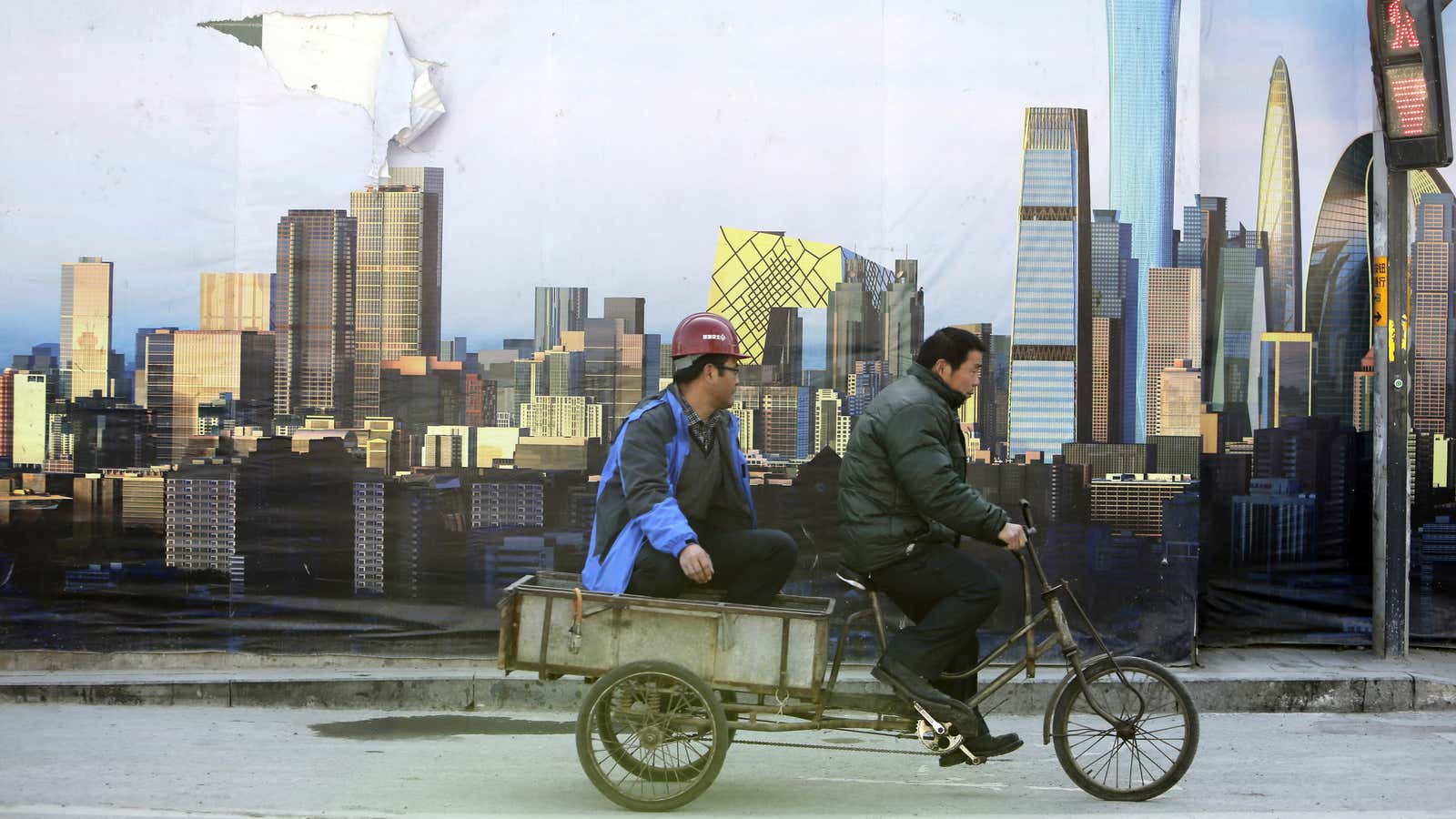Earlier this month, the Chinese government brought down its 2015 GDP growth target to “around 7%,” from 2014’s goal of “around 7.4%.” It’s a sharper drop than we’ve seen so far this century.
We’ve barely settled into 2015, and already it’s looking like “around 7%” will be a hard mark to hit. In Q1, Chinese firms continued to pull back on investing in their businesses, according to just-published research by China Beige Book, a research group. While cooling investment growth could be a good thing—it might help curb debt—there’s nothing to fill that void. The feeble retail sales that CBB documented in its surveys suggest that consumers didn’t pick up that slack.
There’s some upbeat news, too. Deflation isn’t a problem, it seems. In fact, by lowering production costs and wage growth, the slowing pace of inflation (i.e. “disinflation”) is boosting firms’ profits, says CBB. Its findings are based on quantitative and qualitative interviews with businesses around China.
That bodes well for stable employment—and might even allow firms to slough off some of their debt.
However, some parts of China’s economy seem to be foundering much more than others. The rates banks charge for loans dropped in Q1—hardly surprising, given the withering of investment, and that markedly fewer firms are borrowing than were in 2012 and 2013. Yet, so hard up for cash are firms that depend on shadow banks—usually small, non-state companies—that rates jumped 1.25 percentage points in Q1.
For the first time since CBB began polling in 2009, some firms are reporting imploding sales. ”Without a recovery, and none is visible, some firms will need government aid to survive,” notes the report.
These findings square with other preliminary research. A report by the Chinese Academy of Social Science’s estimates the economy grew less than 6.9% in Q1, reports Yicai.com (link in Chinese), via Sinocism. Gao Peiyong, chair of CASS’s finance academy, warns that the economy is decelerating “very fast,” making China’s full-year target tough to meet. Capital Economics is even less optimistic, calculating that growth slowed to 6.8% in Q1.
China’s growth has threatened to drop abruptly every Q1 since 2012—and each year, the government has cranked up the credit, juicing the economy later in the year. Anxious about the country’s mammoth pile of corporate debt, China’s leaders say they don’t want to lend their way out of a slowdown once again. It will be interesting to see if they’ve finally developed the stomach for weaker growth.
Not that a big cool-down in China’s GDP wouldn’t be a good thing. It would, argues Michael Pettis, finance professor at Peking University, in a recent Bloomberg Brief—provided household income keeps growing two or three percentage points faster.
China’s official data make it hard to know what’s happening with income growth. However, CBB’s Q1 data weren’t exactly heartening. Even though the Chinese New Year holiday typically gives workers more bargaining power in Q1, growth in wages, a major component of household income, slowed this quarter.
